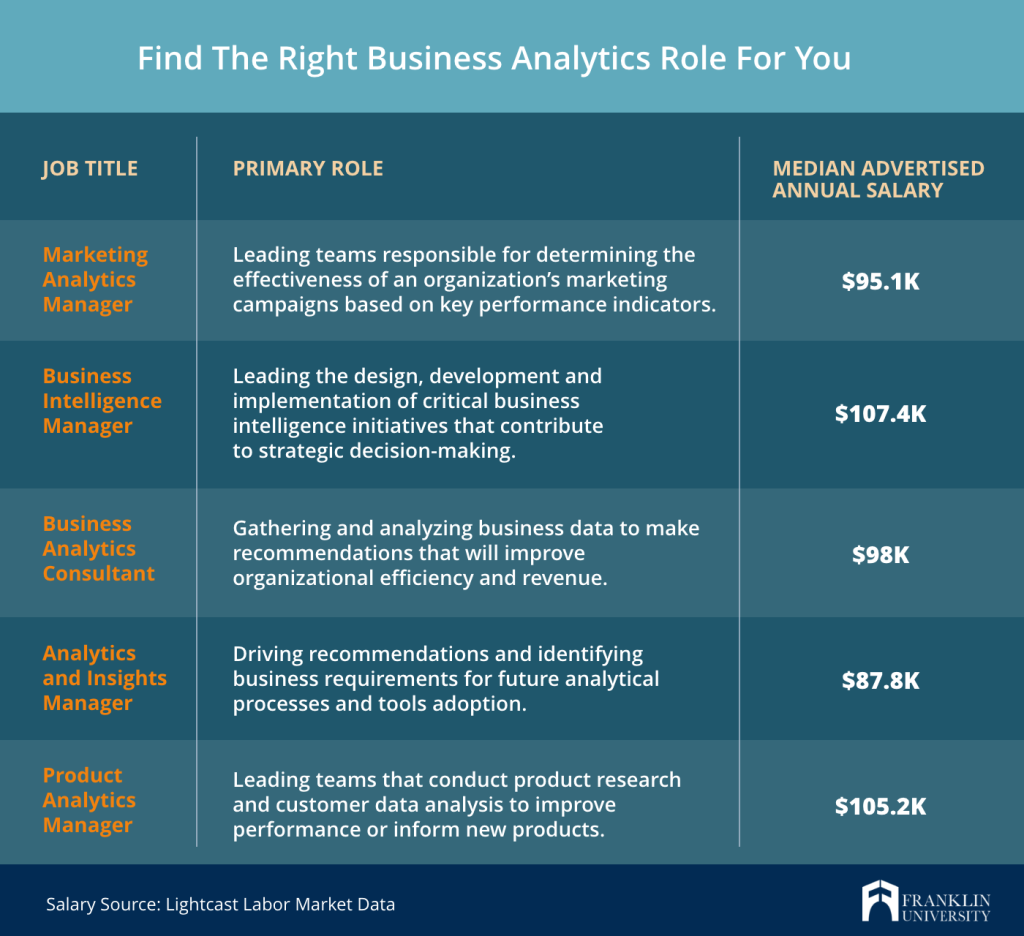

There has been a growing demand for professionals who can analyze and interpret data to help businesses make better decisions. Entry-level business analyst careers are in high demand and offer promising opportunities for career growth.
Editor’s Notes: Entry level business analyst careers guide published today. The increasing need for data-driven decision-making in various industries has made entry-level business analyst careers pivotal roles. With a comprehensive understanding of business processes, data analysis, and communication skills, entry-level business analysts play a crucial role in transforming raw data into actionable insights.
After analyzing the market, researching industry trends, and gathering insights from experts, we put together this entry level business analyst careers guide to help you make informed decisions about pursuing a career in this field.
Key differences or Key takeaways
Essential skills for entry-level business analysts
Strong analytical and problem-solving skills are key for entry-level business analysts. They should be able to think critically and creatively to identify problems and develop solutions. Additionally, entry-level business analysts should have excellent communication and presentation skills to effectively convey their findings to stakeholders.
Career path for entry-level business analysts
With experience and continued professional development, entry-level business analysts can advance their careers to more senior roles, such as business analyst, senior business analyst, or even management positions. The career path for entry-level business analysts is promising and offers opportunities for growth and advancement.
Conclusion
Suggested read: Unveiling the Secrets to a Thriving Career in Business Analysis
Entry-level business analyst careers offer a promising career path for those interested in data analysis and problem-solving. With the right skills and experience, entry-level business analysts can advance their careers and make a significant impact on the success of their organizations.
Entry Level Business Analyst Careers
Entry-level business analyst careers offer a promising path for those interested in data analysis and problem-solving. Key aspects to consider include:
- Analytical skills
- Problem-solving skills
- Communication skills
- Presentation skills
- Data analysis skills
- Business knowledge
- Industry knowledge
- Project management skills
- Stakeholder management skills
- Career advancement opportunities
These aspects are essential for entry-level business analysts to succeed in their roles. They must be able to think critically and creatively to identify problems and develop solutions. Additionally, they must be able to communicate their findings effectively to stakeholders. Entry-level business analysts should also have a strong understanding of data analysis techniques and business processes. With experience and continued professional development, entry-level business analysts can advance their careers to more senior roles, such as business analyst, senior business analyst, or even management positions.
Analytical skills and entry level business analyst careers
Analytical skills are essential for entry-level business analyst careers. Business analysts must be able to think critically and creatively to identify problems and develop solutions. They must also be able to analyze data and communicate their findings effectively to stakeholders.
-
Problem-solving
Entry-level business analysts must be able to identify and solve problems. They must be able to think critically and creatively to develop solutions that are both effective and efficient. -
Data analysis
Entry-level business analysts must be able to analyze data to identify trends and patterns. They must be able to use data to develop insights that can help businesses make better decisions. -
Communication
Entry-level business analysts must be able to communicate their findings effectively to stakeholders. They must be able to write clear and concise reports and presentations. -
Stakeholder management
Entry-level business analysts must be able to manage stakeholders. They must be able to build relationships with stakeholders and understand their needs.
These are just a few of the analytical skills that are essential for entry-level business analyst careers. By developing these skills, entry-level business analysts can increase their chances of success in this field.
Problem-solving skills
Problem-solving skills are essential for entry-level business analyst careers. Business analysts are responsible for identifying and solving business problems. They must be able to think critically and creatively to develop solutions that are both effective and efficient.
There are many different types of business problems that entry-level business analysts may encounter. These problems can range from simple to complex, and they can occur in any area of business. For example, an entry-level business analyst may be asked to solve a problem with a company’s sales process, marketing campaign, or customer service department.
To solve business problems, entry-level business analysts must use a variety of problem-solving techniques. These techniques include:
- Root cause analysis: identifying the underlying cause of a problem
- Brainstorming: generating a list of possible solutions to a problem
- Decision analysis: evaluating the pros and cons of different solutions
- Implementation planning: developing a plan to implement the chosen solution
Entry-level business analysts must also be able to communicate their solutions to stakeholders. This includes writing clear and concise reports and presentations. They must also be able to answer questions and defend their solutions.
Problem-solving skills are essential for entry-level business analyst careers. By developing these skills, entry-level business analysts can increase their chances of success in this field.
Suggested read: Unveiling the Secrets of Artist Business Cards: Tips and Tricks for Unmatched Impact
Here are some examples of how problem-solving skills are used in entry-level business analyst careers:
- Identifying and solving problems with a company’s sales process
- Developing and implementing a new marketing campaign
- Improving the efficiency of a customer service department
- Conducting a cost-benefit analysis of a new software system
- Developing a plan to improve employee morale
These are just a few examples of the many ways that problem-solving skills are used in entry-level business analyst careers.
Communication skills
Communication skills are essential for entry-level business analyst careers. Business analysts must be able to communicate their findings and recommendations to a variety of stakeholders, including clients, executives, and team members. They must be able to write clear and concise reports, presentations, and emails. They must also be able to speak effectively in meetings and other settings.
-
Active listening
Active listening is the ability to listen attentively to what others are saying, both verbally and nonverbally. It involves paying attention to the speaker’s tone of voice, body language, and overall message. Active listeners are able to ask clarifying questions and summarize what they have heard to ensure understanding. -
Clear and concise writing
Business analysts must be able to write clear and concise reports, presentations, and emails. Their writing should be easy to understand and free of jargon. They should also be able to tailor their writing to the audience they are addressing. -
Effective speaking
Business analysts must be able to speak effectively in meetings and other settings. They should be able to present their findings and recommendations in a clear and persuasive manner. They should also be able to answer questions and defend their ideas. -
Interpersonal skills
Business analysts must have strong interpersonal skills. They must be able to build relationships with stakeholders and work effectively with people from all backgrounds.
Communication skills are essential for success in entry-level business analyst careers. By developing these skills, entry-level business analysts can increase their chances of success in this field.
Presentation skills
Presentation skills are essential for entry-level business analyst careers. Business analysts must be able to communicate their findings and recommendations to a variety of stakeholders, including clients, executives, and team members. They must be able to do this in a clear, concise, and persuasive manner.
There are many different types of presentations that entry-level business analysts may be asked to give. These presentations may include:
- Project status updates
- Findings from data analysis
- Recommendations for process improvements
- Training sessions
Entry-level business analysts must be able to tailor their presentations to the audience they are addressing. They must also be able to use visual aids, such as charts and graphs, to make their presentations more engaging and informative.
Presentation skills are essential for success in entry-level business analyst careers. By developing these skills, entry-level business analysts can increase their chances of success in this field.
| Skill | Importance | Example |
|---|---|---|
| Clear and concise communication | Stakeholders can easily understand the findings and recommendations. | Using bullet points, headings, and visuals to organize information. |
| Persuasive delivery | Stakeholders are more likely to accept the findings and recommendations. | Using data and evidence to support claims, and anticipating and addressing potential objections. |
| Effective use of visual aids | Presentations are more engaging and informative. | Using charts, graphs, and images to illustrate key points. |
Data analysis skills
Data analysis skills are essential for entry-level business analyst careers. Business analysts use data analysis to identify trends, patterns, and insights that can help businesses make better decisions. Entry-level business analysts should have a strong foundation in data analysis techniques, including:
- Data collection
- Data cleaning
- Data analysis
- Data visualization
Entry-level business analysts should also be able to use data analysis software, such as SQL, Python, and R. With these skills, entry-level business analysts can help businesses improve their operations, make better decisions, and gain a competitive advantage.
Suggested read: Franchise Business for Sale – Find Profitable Opportunities Near You
For example, an entry-level business analyst might use data analysis to identify trends in customer behavior. This information could then be used to develop targeted marketing campaigns that are more likely to be successful. Or, an entry-level business analyst might use data analysis to identify inefficiencies in a company’s supply chain. This information could then be used to develop solutions that improve efficiency and reduce costs.
Data analysis skills are essential for entry-level business analyst careers. By developing these skills, entry-level business analysts can increase their chances of success in this field.
| Skill | Importance | Example |
|---|---|---|
| Data collection | Entry-level business analysts must be able to collect data from a variety of sources. | Surveys, interviews, and focus groups |
| Data cleaning | Entry-level business analysts must be able to clean data to remove errors and inconsistencies. | Using data cleaning software or manual processes |
| Data analysis | Entry-level business analysts must be able to analyze data to identify trends, patterns, and insights. | Using statistical analysis techniques or data mining software |
| Data visualization | Entry-level business analysts must be able to visualize data to make it easier to understand. | Using charts, graphs, and other visual aids |
Business knowledge
Business knowledge is essential for entry-level business analyst careers. Business analysts must have a deep understanding of the business environment in which they work. This includes knowledge of the industry, the company, and the specific business processes that are being analyzed.
-
Industry knowledge
Industry knowledge is important for business analysts because it helps them to understand the competitive landscape and the challenges that businesses face. Business analysts with industry knowledge are better able to identify opportunities and risks, and to develop solutions that are tailored to the specific needs of the business. -
Company knowledge
Company knowledge is important for business analysts because it helps them to understand the specific goals, objectives, and challenges of the business. Business analysts with company knowledge are better able to align their work with the strategic priorities of the business. -
Business process knowledge
Business process knowledge is important for business analysts because it helps them to understand how the business operates. Business analysts with business process knowledge are better able to identify inefficiencies and opportunities for improvement. -
Project management knowledge
Project management knowledge is important for business analysts because it helps them to plan, execute, and deliver projects successfully. Business analysts with project management knowledge are better able to manage the scope, schedule, and budget of their projects.
Business knowledge is essential for entry-level business analyst careers. By developing a deep understanding of the business environment, business analysts can increase their chances of success in this field.
Industry knowledge
Industry knowledge is crucial for entry-level business analyst careers. It enables analysts to comprehend the competitive landscape, challenges, and opportunities within a specific industry. This understanding empowers them to provide valuable insights and solutions tailored to the unique needs of businesses operating in that sector.
-
Understanding Market Dynamics
Industry knowledge equips analysts with an in-depth understanding of market trends, customer behavior, and competitive strategies. This knowledge enables them to identify potential risks and opportunities, anticipate market shifts, and develop effective strategies to address industry-specific challenges.
-
Identifying Industry Best Practices
By staying abreast of industry best practices, entry-level business analysts can learn from the successes and failures of others. This knowledge allows them to incorporate proven methodologies, tools, and techniques into their work, leading to more efficient and effective business analysis.
-
Building Credibility with Stakeholders
Suggested read: Uncover Business Analyst Intern Insights: A Gateway to Success
When business analysts demonstrate a deep understanding of the industry, they establish themselves as credible and knowledgeable professionals. This credibility enhances their ability to influence decision-making, gain stakeholder buy-in, and drive positive change within the organization.
-
Career Advancement Opportunities
Industry knowledge is a valuable asset for career advancement. Entry-level business analysts who develop expertise in a particular industry may qualify for specialized roles, promotions, and leadership positions within that industry.
In conclusion, industry knowledge is an essential foundation for entry-level business analyst careers. It empowers analysts to deliver insightful and impactful recommendations, build credibility, and advance their careers in a chosen industry.
Project management skills
Project management skills are essential for entry-level business analyst careers. Business analysts are often responsible for managing projects, from inception to completion. They must be able to plan, execute, and control projects to ensure that they are completed on time, within budget, and to the required quality standards.
There are many different project management skills that entry-level business analysts need to develop. These skills include:
- Project planning: Entry-level business analysts must be able to plan projects effectively. This includes developing project charters, schedules, and budgets.
- Project execution: Entry-level business analysts must be able to execute projects according to plan. This includes managing project teams, tracking progress, and resolving issues.
- Project control: Entry-level business analysts must be able to control projects to ensure that they are completed on time, within budget, and to the required quality standards. This includes monitoring project progress, identifying risks, and taking corrective action.
Project management skills are essential for entry-level business analyst careers because they enable business analysts to manage projects successfully. By developing these skills, entry-level business analysts can increase their chances of success in this field.
Here are some examples of how project management skills are used in entry-level business analyst careers:
- Planning and executing a project to implement a new software system
- Managing a project to improve the efficiency of a business process
- Controlling a project to ensure that it is completed on time and within budget
These are just a few examples of the many ways that project management skills are used in entry-level business analyst careers.
Table: Key Insights on Project Management Skills for Entry-Level Business Analyst Careers
Suggested read: Unlock the Secrets of Apple Maps: Discover the Path to Business Success
| Skill | Importance | Example |
|---|---|---|
| Project planning | Develop project charters, schedules, and budgets | Planning a project to implement a new software system |
| Project execution | Manage project teams, track progress, and resolve issues | Managing a project to improve the efficiency of a business process |
| Project control | Monitor project progress, identify risks, and take corrective action | Controlling a project to ensure that it is completed on time and within budget |
Stakeholder management skills
Stakeholder management skills are essential for entry-level business analyst careers. Business analysts work with a variety of stakeholders, including clients, executives, and team members. They must be able to build relationships with stakeholders, understand their needs, and manage their expectations. This requires strong stakeholder management skills.
There are also two main types of stakeholders: internal and external. Internal stakeholders are those within the organization, such as employees, managers, and executives. External stakeholders are those outside the organization, such as customers, suppliers, and partners.
Here are some examples of how stakeholder management skills are used in entry-level business analyst careers:
- Identifying and understanding the needs of stakeholders.
- Developing and implementing strategies to meet the needs of stakeholders.
- Managing expectations and communicating with stakeholders throughout the project lifecycle.
- Resolving conflicts and issues that may arise during the project.
- Building and maintaining relationships with stakeholders.
- Influencing and persuading stakeholders to support the project.
By developing strong stakeholder management skills, entry-level business analysts can increase their chances of success in this field.
| Skill | Importance | Example |
|---|---|---|
| Communication | Communicating effectively with stakeholders is essential for building relationships and managing expectations. | Using active listening skills, asking clarifying questions, and providing regular updates to stakeholders. |
| Interpersonal skills | Building strong relationships with stakeholders is essential for gaining their trust and support. | Demonstrating empathy, understanding different perspectives, and being able to build rapport with others. |
| Negotiation skills | Negotiating effectively with stakeholders is essential for reaching agreements and resolving conflicts. | Understanding the needs of stakeholders, being able to compromise, and finding mutually acceptable solutions. |
| Problem-solving skills | Solving problems effectively is essential for addressing stakeholder concerns and meeting their needs. | Identifying the root cause of problems, developing creative solutions, and implementing solutions that are acceptable to stakeholders. |
| Influence and persuasion skills | Influencing and persuading stakeholders is essential for gaining their support for the project. | Using data and evidence to support arguments, building strong relationships with stakeholders, and being able to articulate a clear vision for the project. |
Career advancement opportunities
Career advancement opportunities are a key consideration for individuals exploring entry-level business analyst careers. These opportunities provide pathways for professional growth, increased responsibilities, and higher earning potential.
-
Management roles
Business analysts with strong leadership and strategic thinking skills can advance to management roles, such as project manager, business analysis manager, or IT manager. In these roles, they oversee teams of business analysts, manage projects, and provide strategic guidance to the organization. -
Consulting roles
Business analysts with expertise in a particular industry or domain can transition to consulting roles. As consultants, they provide specialized advice and guidance to clients on business process improvement, technology implementation, and other areas. -
Data science roles
Business analysts with strong analytical and data management skills can move into data science roles. Data scientists use statistical techniques and machine learning algorithms to extract insights from data, which can inform decision-making and improve business outcomes. -
Product management roles
Business analysts with a deep understanding of customer needs and market trends can advance to product management roles. Product managers are responsible for defining, developing, and launching new products or features.
These are just a few examples of the many career advancement opportunities available to individuals with entry-level business analyst experience. By developing a strong foundation in business analysis principles, honing technical skills, and seeking out opportunities for professional development, individuals can position themselves for success in these roles.
Entry Level Business Analyst Careers FAQs
This section addresses frequently asked questions about entry-level business analyst careers to provide comprehensive information for aspiring professionals.
Question 1: What are the essential skills required for entry-level business analysts?
Entry-level business analysts should possess strong analytical and problem-solving abilities, coupled with effective communication and presentation skills. They should also have a solid understanding of data analysis techniques, business processes, and industry knowledge.
Suggested read: Unveil the Secrets of Business Professional Outfits for Women: A Guide to Success
Question 2: What career advancement opportunities are available for business analysts?
With experience and professional development, business analysts can advance to roles such as project managers, business analysis managers, consultants, data scientists, and product managers, offering diverse career paths with increased responsibilities and earning potential.
Question 3: What are the key differences between business analysts and data analysts?
While both roles involve data analysis, business analysts focus on understanding business requirements and processes to improve decision-making, while data analysts specialize in extracting insights from data using statistical and machine learning techniques.
Question 4: Is a business analyst certification necessary for entry-level careers?
While not mandatory, obtaining a certification, such as the Certified Business Analysis Professional (CBAP) or International Institute of Business Analysis (IIBA) Entry Certificate in Business Analysis, can enhance credibility and demonstrate proficiency.
Question 5: What industries offer promising career prospects for business analysts?
Suggested read: Unlock the Secrets of Coaching Business Coaches: Discoveries for Business Success
Business analysts are in high demand across various industries, including technology, finance, healthcare, manufacturing, and retail. Industries undergoing digital transformation or facing complex business challenges often seek skilled business analysts.
Question 6: What is the job outlook for entry-level business analysts?
The job outlook for business analysts is projected to grow faster than average, driven by the increasing adoption of data-driven decision-making and the need for professionals who can bridge the gap between business and technology.
Summary: Entry-level business analyst careers offer promising opportunities for individuals with analytical, problem-solving, and communication skills. By developing a strong foundation in business analysis principles, pursuing professional development, and gaining industry knowledge, aspiring professionals can position themselves for success in this dynamic field.
Transition to the next article section: Explore the key responsibilities and challenges faced by business analysts in various industries to gain a deeper understanding of the profession.
Tips for Entry-Level Business Analyst Careers
To succeed in entry-level business analyst careers, aspiring professionals should consider the following tips:
Tip 1: Develop Strong Analytical and Problem-Solving Skills
Business analysts need to be able to analyze complex business problems, identify root causes, and develop effective solutions. Hone these skills through coursework, practice exercises, and real-world projects.
Suggested read: Uncover the Secrets of Business Formal Attire for Women: A Guide to Success
Tip 2: Enhance Communication and Presentation Abilities
Effective communication is crucial for business analysts. Develop strong written and verbal communication skills to convey complex technical concepts to stakeholders in a clear and engaging manner.
Tip 3: Gain Proficiency in Data Analysis Techniques
Business analysts heavily rely on data to make informed decisions. Become proficient in data analysis techniques, including data mining, statistical analysis, and visualization, to extract meaningful insights from data.
Tip 4: Understand Business Processes and Industry Knowledge
A solid understanding of business processes and industry-specific knowledge is essential for business analysts. Study business process frameworks, industry trends, and best practices to gain a comprehensive perspective.
Tip 5: Obtain Business Analysis Certification
While not mandatory, obtaining a recognized business analysis certification, such as the CBAP or IIBA Entry Certificate, demonstrates proficiency and enhances credibility in the job market.
Tip 6: Network and Attend Industry Events
Attend industry conferences, meetups, and networking events to connect with potential employers, learn about industry trends, and stay abreast of best practices.
Suggested read: Uncover Business Secrets: Dive into Nebraska's Entity Search
Tip 7: Build a Strong Portfolio
Create a portfolio that showcases your business analysis skills and experience. Include case studies, project deliverables, and examples of your written and presentation work.
Tip 8: Stay Updated with Technology Trends
Business analysis is constantly evolving with advancements in technology. Stay informed about emerging technologies, such as artificial intelligence, machine learning, and cloud computing, to remain competitive.
Summary: By following these tips, entry-level business analysts can lay a solid foundation for success in their careers. Developing a strong skillset, gaining industry knowledge, and staying updated with the latest trends will empower them to excel in this dynamic and rewarding field.
Transition to the article’s conclusion: Explore the future prospects and challenges facing business analysts to gain a comprehensive understanding of the profession’s trajectory.
Conclusion
Entry-level business analyst careers offer promising opportunities for individuals seeking to leverage their analytical and problem-solving abilities to drive business success. By developing a strong foundation in business analysis principles, honing technical skills, and gaining industry knowledge, aspiring professionals can position themselves for a rewarding career path.
As technology continues to transform businesses and the demand for data-driven decision-making increases, the role of business analysts will only become more critical. Embracing continuous learning, staying abreast of industry trends, and seeking opportunities for professional development will empower entry-level business analysts to navigate the evolving landscape and make significant contributions to their organizations.






